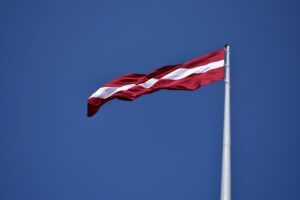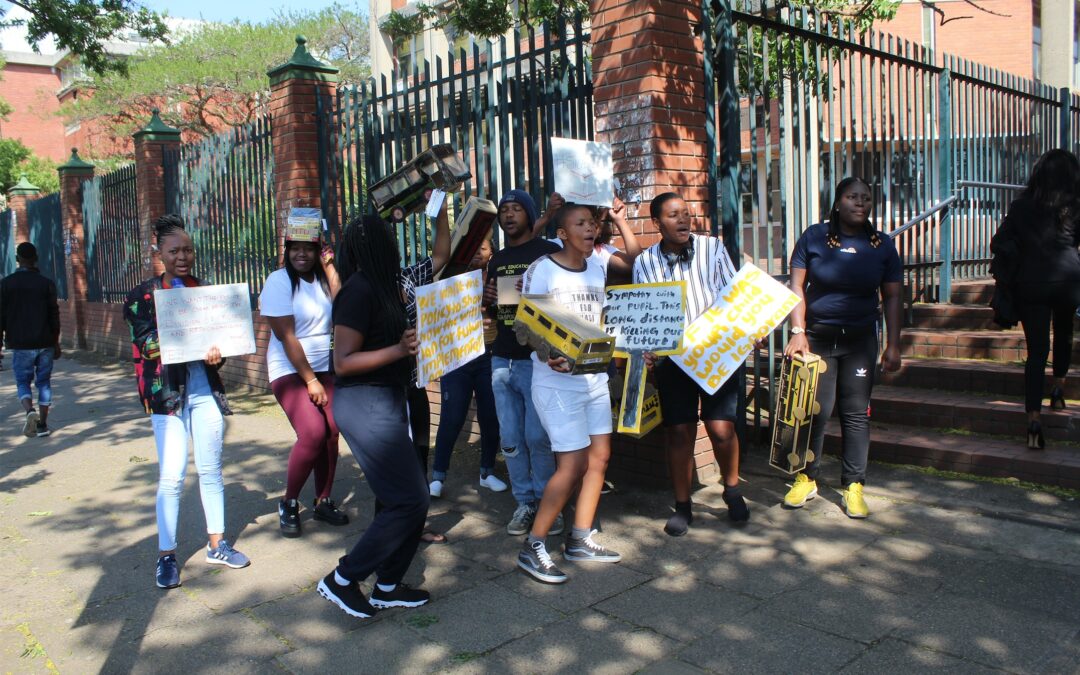
Nov 1, 2019 | News, Op-eds
An opinion editorial by Shaazia Ebrahim, Communications Consultant for ICJ’s Africa Programme.
Nomfundo Ngobese (25) was used to waking up at 4am to walk the 35km from her home in Nquthu, northern KwaZulu Natal (KZN) to school. In the blistering heat and the freezing cold, crossing rivers and sometimes dodging rain and lightning, Ngobese, was like many South African school learners who walked for hours to get to and from school each day.
“We had to wake up past 4 so that at past 5 we can go to school. In winters when we had to go to school, it was dark. We didn’t feel safe… We didn’t even realise the difficulties our smaller siblings were facing. It’s a thing that we just got used to,” Ngobese said.
While learners all over South Africa walk for hours every day to get to school and back home, KZN has the greatest need for scholar transport. According to the 2016 General Household Survey done by Statistics South Africa, some 483 633 learners in KZN walk more than half an hour in one direction to school each day.
But the end of the battle for learners with similar experiences to Ngobese could be in sight.
On October 23, Ngobese joined other Equal Education (EE) post-school youth organisers in picketing outside the Pietermaritzburg High Court. EE, represented by the Equal Education Law Centre (EELC), had sued the KZN Department of Education (DoE) to court to force the government into releasing the provincial scholar transport policy, which should have been available in December 2018.
They emerged victorious when government committed to releasing its Scholar Transport Policy for public comment by 31 January next year. Should the KZN DoE fail to comply, it will have to answer to the courts. The release of this policy is a critical step in ensuring that more learners will be able to have access to school transportation.
EE has been working to achieve free and safe scholar transport in Nquthu since 2014, after Equalisers told EE about the difficulties they faced with scholar transport. Learners highlighted the challenges they faced walking very far distances in extreme heat and in thunderstorms, and crossing rivers and mountains, at great risk of violent crime including sexual assault. Many learners said they felt tired and hungry after the long walk, and could not concentrate properly in class or perform well at school.
“I was once an Equaliser myself and I once walked to school every morning and afternoon,” Palisa Motloung (21) said. “We were never sure what’s going to happen on those routes. I remember this one time when I was walking with my friend, and then we passed a bush and there were men there talking. We couldn’t tell if they were talking on this side or that side of the fence because it was dark. It was very scary, we literally had to run. It was quite an experience and I don’t wish any child should go through that,” Motloung said.
After local visits to schools in Nquthu in 2014 and 2015, EE wrote to the KZN Department of Transport (DoT) and KZN DoE about these hardships learners were facing, and requested information about how they were providing scholar transport in the province. Governments’ replies were unsatisfactory, with the DoE responding that it found that only one of the 12 schools EE discussed qualified for scholar transport.
After long back and forth with government, who provided scholar transport in dribs and drabs, EE found that there was still a desperate need for scholar transport. Government officials claimed that five of the 12 schools did not qualify for scholar transport because learners were not attending the schools closest to their homes. They conceded that seven of the 12 schools did qualify for scholar transport, but said there was no money to provide it. EE took the matter to court.
This is not the first time that a provincial department of education has sued in South Africa for a failure to provide transport for learners. In 2015 the Judge Plasket of the Eastern Cape High Court held in a similar case that “The right to education is meaningless without … transport to and from school at state expense”.
The initial case was set to be heard at the Pietermaritzburg High Court. But before the hearing began, the lawyers representing EE and the lawyers representing the KZN government entered into negotiations with the KZN DoE and KZN DoT made certain promises. The order granted by the Pietermaritzburg High Court stated that the KZN DoE promised to provide scholar transport to learners in the 12 Nquthu schools by 1 April 2018.
While this was a momentous victory for EE, as part of ongoing court processes, the organisation filed a response to the KZN DoE report to the court, recognising the important steps that it had taken, but also noting significant gaps that remain.
The EE urged the KZN DoE in June last year to provide clear timelines for the finalisation of its scholar transport policy. This is a crucial step to clarify which learners qualify for government-subsidised scholar transport, how the KZN DoE and the KZN DoT will work together to provide scholar transport, and how learners’ safety will be ensured.
This report has been delayed for over a year now, but if the decision of the Court is to be implemented, it will be released in January next year.
After coaxing from South African civil society, including EE, The National Learner Transport Policy was finally published in October 2015. The policy contains important scholar transport guidelines and principles that provinces should adhere to. However, while this policy has been finalised, it has yet to be adopted.
The government’s failure to provide learners with transport is a violation of the right to basic education which is protected under the South African Constitution and international law. The International Covenant on Economic Social and Cultural Rights, which South Africa ratified makes clear that education must be free for all learners at a primary school level and should progressively be made free for all learners at all levels.
Free education includes not only the absence of fees but also all other costs include free, reliable and safe transport. This means learners have a right to access their schools safely, and on time, so that they can use their energy to concentrate in class. For many learners in South Africa this is impossible without government funded transport.
“Most of the time, [schoolchildren] wake up very early and they get to school very hungry and tired. This affects their school percentage, the pass rate of the school also gets affected because of the long kilometers that children have to walk to school,” Sanele Zulu (22) said.
“I walked to school but I didn’t even know it was a wrong thing to do until Equal Education came and opened our minds. Even our parents didn’t know it was wrong, they thought that because in the olden days they walked long distances, so we must get used to it. But when EE came to our rural village, something went off in our eyes and we saw things in a different way,” Ngobese said.
Reflecting on their own experiences during school Ngobese, Motloung, and Zulu, continue to use their voices for learners who walk long distances to go to school. Equal Education, with the legal assistance of EELC, continues to advocate for the rights of learners in KwaZulu-Natal and all over South Africa.
Even though the persistent delays in the development and implementation of government policies to facilitate free, safe transport to and from schools is a cause for concern, learner’s faith in the judicial system and rights-based advocacy should be a source of optimism about the future of constitutional democracy in South Africa.
This op-ed was originally published in the Mail & Guardian.
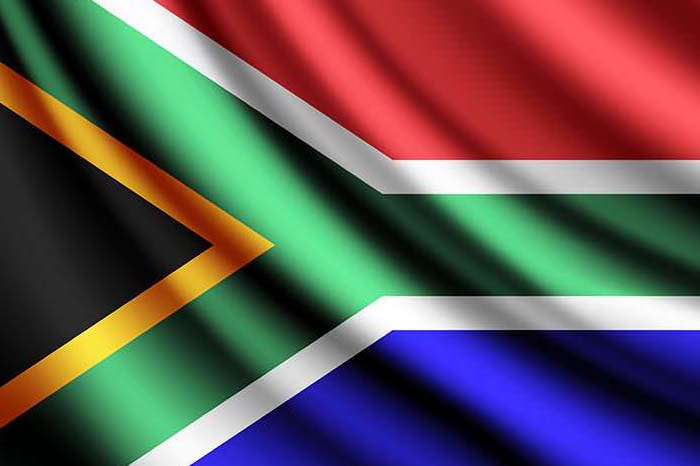
Sep 9, 2019 | News
The ICJ today called on the South African government to take immediate measures to prevent, investigate and bring to justice those responsible for all discriminatory violence that has occurred in the country, particularly against people based on nationality or national origin.
The authorities should make clear that the rights in the South African Constitution’s Bill of Rights and under international law apply to everyone in South Africa and to take demonstrable measures to protect everyone in South Africa from violence, including discriminatory violence, such as targeted xenophobic violence.
“The hard-fought rights in the Bill of Rights of our Constitution apply to everyone who lives in South Africa without exception. Whatever concerns people have must be resolved through listening and through dialogue. The prevailing violent attacks which seem to target people because they are not South African are cruel and inhuman. They can never be justified and must be condemned in the strongest terms possible”, said ICJ Commissioner Justice Yvonne Mokgoro, a former judge of the South African Constitutional Court.
The ICJ further called on the African Union Member States to take immediate measures to stop the retaliatory attacks against South Africans and South African groups and businesses in those countries where they have taken place, including the Democratic Republic of Congo and Nigeria.
“The current xenophobic attacks in South Africa targeting African immigrants as well as retaliatory violence against South Africans living in the affected African countries is highly regrettable. We call upon the leadership of the affected countries to exercise maximum restraint. We further urge them to take urgent measures to guarantee the security and rights of all immigrants and minorities within their borders, as they are duty bound to do so, under their constitutions and instruments against all forms of discrimination and xenophobia”, said ICJ Commissioner Justice Kathurima M’Inoti of the Kenyan High Court and Director of the Kenyan Judicial Education Institute.
The call by the ICJ comes after South Africa experienced a week of widespread looting and attacking of businesses, perceived to be owned by foreign nationals that saw at least 10 killings and many others injured and displaced from homes. The violence began in Jeppestown, a Johannesburg suburb, on Sunday evening and spread to other parts of Johannesburg including the Johannesburg CBD, Malvern, Tembisa, Alexandra and Katlehong.
The ICJ recalls that the African Charter on Human and Peoples Rights, the International Covenant on Civil and Political (ICCPR) and other universal and African regional human rights treaties to which South Africa is party, require that the rights be guaranteed equally to all persons without regard to citizenship or other status.
This is not the first time that South Africa has been gripped with xenophobic attacks. They have occurred periodically and with impunity over the past decade, with spikes in 2008 and in 2015. In 2008 more than 60 people were killed in a wave of violence against foreign nationals. Another significant flare of xenophobic violence also occurred in 2015 receiving widespread civil society condemnation and response though the perpetrators of such violence operated with some degree of impunity. Civil society will once again proceed with a mass protest on the 14th of September in strong opposition to the increasing climate of fear and xenophobia.
“Impunity for acts of violence, particularly xenophobic violence, is a matter of extreme concern. As a Zambian professor teaching at a leading university in South Africa, I am fearful of the lasting impact that continued xenophobia in South Africa has on the human rights of everyone especially non-nationals living in the country. These xenophobic attacks have the potential to destabilize the unity of Africa around human rights values and create a spiral of violence and impunity across the continent. Xenophobic violence is a threat to the observance of human rights on the continent.” said ICJ Commissioner and Professor Michelo Hansungule, of the Centre for Human Rights at the University of Pretoria.
A number of African countries, including Tanzania, Mozambique, Zambia and Nigeria have responded strongly to such xenophobia, including by suspending flights to South Africa and boycotting South African based events, illustrating the seriousness of the xenophobia. Though the South African government has previously presented such incidents to the world as isolated instances of naked criminality without discriminatory intent, in this instance South African Foreign Minister Naledi Pandor has said that “Afrophobia” can no longer be denied.
In responses to violence in South Africa, in Nigeria, protesters in Lagos and Abuja have targeted South African businesses, some hurling rocks and burning tyres outside their premises, with some explicitly indicating that the acts are retribution for violence against Nigerians in South Africa. In the Democratic Republic of the Congo, protesters also attacked and looted South African-owned businesses, some going on to attack the South African consulate in Lubumbashi. Read the full story here: South Africa-surge in xenophobia-news-webstory-2019-ENG
Contact Details:
Arnold Tsunga (Director): c: +26 37 7728 3249 e: arnold.tsunga(a)icj.org
Solomon Ebobrah (Senior Legal Adviser): c: +23 48 0349 27549 e: solomon.ebobrah(a)icj.org
Tim Fish Hodgson (Legal Adviser): c: +27 82 871 9905 e: timothy.hodgson(a)icj.org
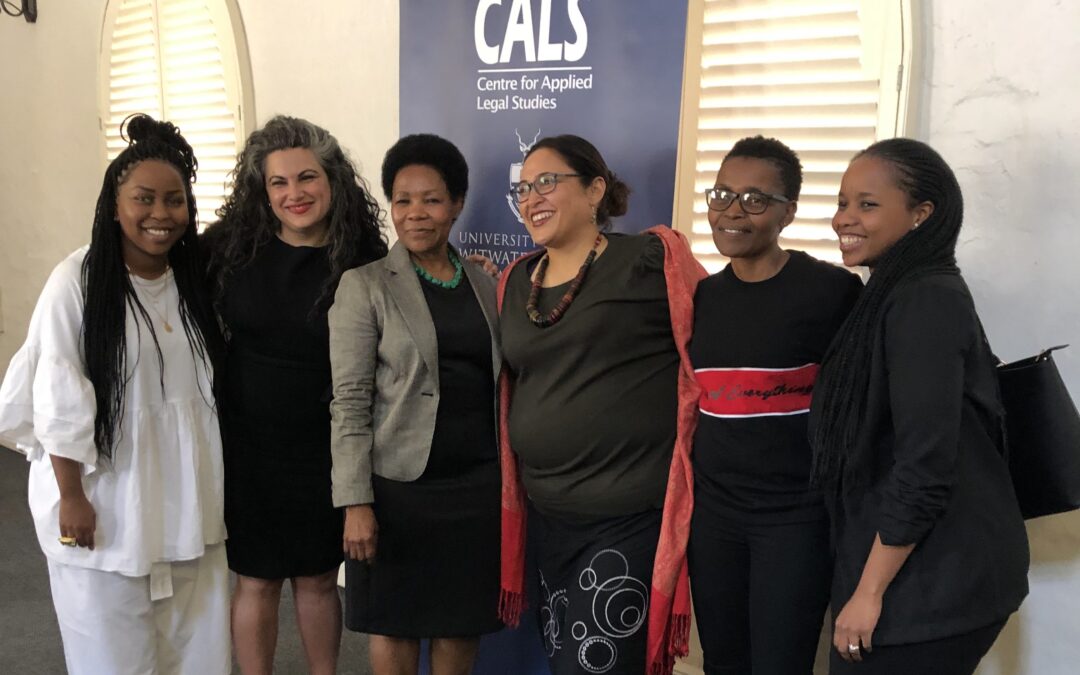
Aug 14, 2019 | News
Today, ICJ Commissioner and former Constitutional Court Justice Justice Yvonne Mokgoro delivered the Keynote Address on Women’s Socio-Economic Rights at an event organized by ICJ and the Centre for Applied Legal Studies (CALS) at the University of Witwatersrand in Johannesburg.
The event, which marked Women’s Month in South Africa, was aimed at promoting the contributions of women human rights defenders and public interest lawyers in advancing women’s socio-economic rights in South Africa.
Justice Mokgoro, the first black women Justice of the Constitutional Court of South Africa, called on human rights defenders, lawyers and judges to recommit to fighting the feminization of poverty in South Africa.
“The indignities suffered by women exposed to poverty in our country are graphic, trauma-inducing and all encompassing. The dire need of women in our patriarchal society must be addressed,” she said.
With reference to the South African Constitution, the International Convention on Economic, Social and Cultural Rights and the Convention on the Elimination of All Forms of Discrimination Against Women, Justice Mokgoro implored judges and lawyers in particular to “engender” the full range socio-economic rights by defining their content in a manner which takes into account the impact of human rights violations on women and girls.
The event featured a panel discussion , which included remarks by Tumelo Matlwa and Amelia Rawhani-Mosalakae, lawyers at CALS, who identified who a range of legal provisions and banking practices relating to matrimonial property have a disproportionate impact on women’s rights to property.
The presentation concluded that “poverty is a form of economic violence that has a disproportionate effect on women”.
Fatima Shabodien, Strategy Director at Raith Foundation, focused her presentation on sexual harassment faced predominantly by women in the public interest law sector in South Africa.
Quoting from Indian author Arundathi Roy, Shabodien observed that “there is no such thing as the voiceless only the deliberately silenced”.
Women, she added, “have not been silent in this sector they have been deliberately silenced”. She urged human rights defenders and public interest lawyers to take allegations of sexual harassment seriously.
Nonhle Mbuthuma, a community activist from the Amadiba Crisisis Committee described the difficulties of being a women human rights defender: “I am a human rights activist and it is a difficult task. You are called a lot of names for challenging the government.
All the names don’t scare me – my mother gave me only one name”, she said. Referring to a judgment of the High Court affirming her community’s right to free, prior and informed consent before the commencement of a mining development, she concluded: “I am very proud of the Constitution and judges who said we have the right to give consent to [whether] mining [can take place]. Not the government or big companies. The people.”
She emphasized that women were, and continue to be, at the forefront of the struggle for access to land in South Africa.
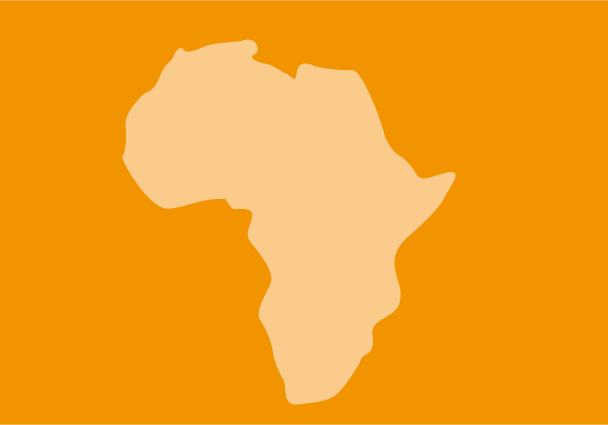
Dec 6, 2018 | News
JOHANNESBURG – The ICJ condemns the ongoing violence committed against and intimidation of community members of the Marievale Community Association. Last night a petrol bomb was thrown onto the roof of Chris Koitsioe’s home at approximately 1am while his wife was asleep and alone.
Chris is a community leader and a former SANDF staff sergeant who has consistently opposed the community’s eviction and mistreatment by the SANDF.
The ICJ calls on President Ramaphosa, as Commander in Chief of the SANDF, the Minister of Defence Nosiviwe Mapisa-Nqakula and Lieutenant General Lindile Yam to condemn these outrageous and persistent attacks on members of the community. Furthermore, we call on the SANDF and Minister of Defence and other public officials to comply with and implement all court orders relating to the Marievale community and ensure the safe, expeditious and unimpeded return of community members to their homes. The ICJ further calls for the authorities to openly and transparently investigate this assault on Mr Koitsioe’s home and bring the perpetrators to justice.
The Community was unlawfully evicted from their homes on an abandoned army base near Nigel, Johannesburg South, in late November 2017. They have won repeated court orders from the South and North Gauteng High Courts, ordering the SANDF to return them to their homes and condemning their ill treatment by SANDF members during and after their eviction.
Most recently, with the assistance of Lawyers for Human Rights, the community approached the North Gauteng High Court, seeking the arrest of the Minister of Defence and several army generals involved in the evictions for a failure to comply with orders of the High Court requiring them to be returned to their homes. Though last week, this contempt of court order was denied by the North Gauteng High Court, the court reiterated that the community is to be returned to their homes by Friday 7 December 2018.
Attorney at LHR, Ms. Louise Du Plessis expressed that the “LHR is deeply concerned about the ongoing unlawful conduct taking place at Marievale, especially because of the suspected involvement of the SANDF”. She added: “although, at this stage it is merely an allegation that the SANDF is responsible for the attack on Chris’ family, there is good reason to believe that [Chris] is being targeted for leadership role in the fight to see justice done for the Marievale community, after the appalling and callous eviction at the hands of the SANDF”.
This serious attack on Mr Koitsioe’s home occurred directly in this context.
Mr Koitsioe says “members of the community resisting their eviction in court, feel that the army has encouraged and sown divisions in our midst deliberately”. He adds, “whether this attack was perpetrated with or without the influence and knowledge of the army, it is critical that the SANDF roundly condemn such attacks to prevent further violence against innocent community members seeking only to protect our constitutional rights and internationally recognized human rights”. He concludes “my family and I are traumatised, I have reason to believe that this attack was deliberately perpetrated when it was known that I would be out of town speaking to a group of 25 magistrates in Limpopo about the importance of understanding and protecting communities’ housing rights”.
“While the army should be a source of security for everyone in South Africa, the Marievale community have faced persistent and repetitive violations of their economic, social and cultural rights at the hands of the SANDF. Such conduct is a significant and serious threat to the rule of law” lamented Arnold Tsunga, ICJ Africa Director. “The ICJ is concerned at the pattern of similar attacks against other communities claiming their rights in court such as AbahlaliBaseMjondolo in KwaZulu-Natal and the Amadiba Crisis Committee in Xolobeni who have faced similar harassment, assault and even assassination for claiming their rights” added Tsunga.
Public authorities in South Africa has an obligation under international human rights law and standards to ensure that the bombing of Chris Koitsioe’s home and other such acts of violence and intimidation are promptly, independently and impartially investigated. Those responsible for such attacks must be brought to justice and victims of any human rights violations involved must receive effective redress and remedy.
In October 2018, the UN Committee on Economic, Social and Cultural Rights noted that it was “concerned at reports of human rights defenders, particularly those working to promote and defend the rights under the Covenant in the mining and environmental sectors, being threatened and harassed”. Koitsioe advises that the community has long suspected that part of the motivation for its eviction is the recent initiation of coal mining activities near their homes.
Further comment:
Chris Koitsioe| Marievale Community Association| C: +27738370265
Louise Du Plessis |Attorney | Lawyers for Human Rights C: +27823460744 E: louise(a)communitylaw.co.za
Timothy Fish Hodgson|Legal Adviser on Economic, Social and Cultural Rights| International Commission of Jurists| C: +27828719905 E; timothy.hodgson(a)icj.org
Further Resources:
The judgment handed down on 30 November 2018 is available here.
The judgment handed down in May 2018 is available here.
The judgment handed down in March 2018 is available here.
The judgment handed down in February 2018 is available here.
The South African Constitution is available here.
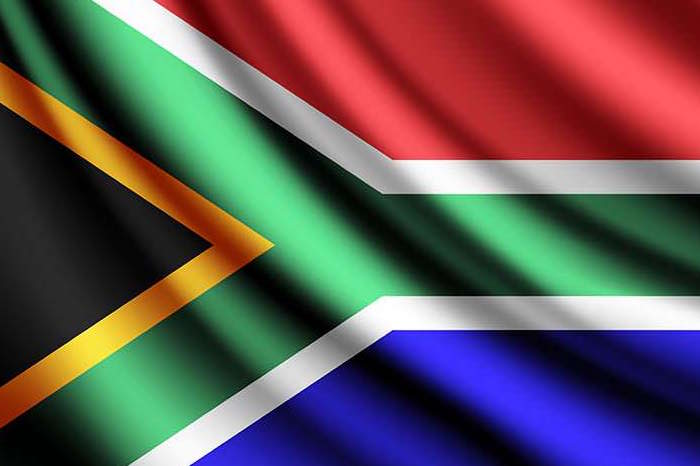
Nov 22, 2018 | News
The ICJ welcomes the landmark decision by the North Gauteng High Court in the Duduzile Baleni and 128 Others v Minister of Mineral Resources in which the Court affirmed the principle of free, prior and informed consent in relation to mining activities.
On Thursday the 22nd of November 2018, the Court declared that the Minister of Mineral Resources cannot grant a license to any mining company without first obtaining the full and informed consent of the affected community.
It concluded: “The applicants in this matter [have] the right to decide what happens with their land. As such they may not be deprived by their land without their consent. Where the land is held on a communal basis – as in this matter – the community must be placed in a position to consider the proposed deprivation and be allowed to take a communal decision in terms of their custom and community on whether they consent or not to a proposal to dispose of their rights to their land.”
“This decision is a positive step towards protecting the rights of vulnerable communities from the excesses of States in the benefit of corporations. Informed consent from affected communities is vital for economic activities to bring development that enriches the lives of the communities where the companies operate,” said Arnold Tsunga, ICJ Africa Regional Programme Director.
“The ICJ will continue to support the community through its cooperation with Ms. Nonhle Mbuthuma of the Amadiba Crisis Committee. We regard the community as Human Rights Defenders who are fighting to protect their internationally recognized economic, social and cultural rights,” he added.
The ICJ calls on the South African government to respect the judgment which conforms with the requirements of South African legislation, the South African Constitution, judgments of the Constitutional Court of South Africa and international human rights law.
Contact
Arnold Tsunga, Director of the ICJ Africa Regional Programme, m: +263 77 728 3248, e: arnold.tsunga(a)icj.org
South Africa-Xolobeni decision-News-web story-2018-ENG (full stroy with additional information, in PDF)






